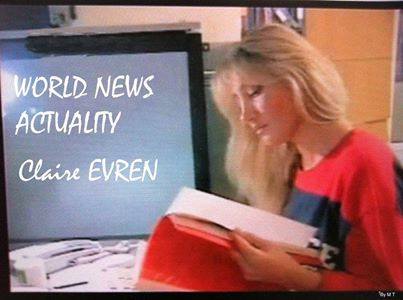World News Actuality Presented By Claire Evren – President Vladimir Putin as delivered his annual New Year’s address.
President Vladimir Putin as delivered his annual New Year’s address.
“Each of us may become something of a magician on the night of the new year,” he said.
“To do this we simply need to treat our parents with love and gratitude, take care of our children and families, respect our colleagues at work, nurture our friendships, defend truth and justice, be merciful and help those who are in need of support.
“This,” he said, “is the whole secret.”
This new year, the world witnessed a kinder, gentler Putin — a leader who at his annual state of the nation address in early December insisted: “We are not seeking and have never sought enemies. We need friends.”
Putin also made a point of extending a message of congratulations to a long list of world leaders, dignitaries and government officials, including Britain’s Queen Elizabeth II and Prime Minister Theresa May, Turkish President Recep Tayyip Erdogan, Chinese President Xi Jinping, French President François Hollande, German Chancellor Angela Merkel, Pope Francis, UN Secretary-General Ban Ki-moon, and Israeli Prime Minister Benjamin Netanyahu, but noticeably excluded president Obama from his well-wishes.
-

-

-
World News Actuality Claire Evren & Giorgio Armani
In a post on Russia’s official Twitter account on Friday (30 December), Putin did however, send a “New Year greeting to President Obama & his family, also to President-elect @RealDonaldTrump & American people.”
Some in the West claim it’s real — or at least hope it is, a chance to set relations back on track with a Russian leader who sees the incoming US president, Donald Trump, as a potential partner.
He spoke about the nuclear arms program. He was upbeat on the economy, saying Russia will return to growth next year. He spoke about oil prices, saying they will hopefully go up. He congratulated Russia’s farmers on successful harvest.
Putin spoke about the game of chess, commented on the popularity of kvas, a traditional Russian drink, and offered his views on the reading habits of Russian children.
Asked about whether he plans to run again in Russia’s 2018 presidential election, he said he will consider the state of Russia and the world at that time, look at what he has achieved, and then decide whether to pursue another term.
Russia has started to cut back its forces in Syria.
Warships led by Russia’s sole aircraft carrier, Admiral Kuznetsov, will be the first to leave the conflict area, the chief of the Russian Armed Forces General Staff, Gen. Valery Gerasimov, is quoted as saying.
It is not clear if the Kuznetsov’s warplanes will leave with it or if any will stay behind in Latakia, Syria.
The decision to cut Russia’s military presence in Syria was made by Putin at the recommendation of his Defense Minister Sergei Shoigu on December 29, according to Russia’s state-run agency Sputnik.
“In accordance with the decision of Supreme Commander-in-Chief of the Russian Armed Forces Vladimir Putin, the Defense Ministry is beginning to reduce the Armed Forces grouping in Syria,” Gerasimov reportedly said.
The warships led by the Kuznetsov left Russia on October 15, headed for the Syrian coast.
Peace talks
If the ceasefire holds, peace negotiations are slated to take place in late January in Astana, Kazakhstan.
UN: ‘It is not over’
The UN special envoy for Syria, Staffan de Mistura, said Thursday that he welcomed the UN Security Council’s unanimous support of a resolution backing the ceasefire plan brokered by Russia and Turkey.
“There are incidents, we know about them, we are informed, and we are trying and hoping that the two guarantors, and we trust they will, succeed in overcoming them so that they reach the point in which the cessation of hostilities will be recognized and working this time,” he said.
The United Nations hopes that positive talks in Kazakhstan will lead in to talks in Geneva, Switzerland, in February, he said.
Jan Egeland, the UN senior adviser on Syria, speaking at the same briefing, said there was “a lot of fighting” in rural Damascus, as well as Homs and Hama, which had meant five out of 21 locations for planned aid convoys had been denied.
“So it is not over, even though the cessation of hostilities is largely holding in large parts of the country, there are tremendous dramas for the civilian population still, and we are denied access still in too many places,” he said.
US Secretary of State John Kerry said Thursday that he had been in contact with his Russian and Turkish counterparts and others, “talking about how we would build conceivably on what happens in Astana, if it can happen, in order to get to Geneva and get to the real negotiations that the international community supports.”



